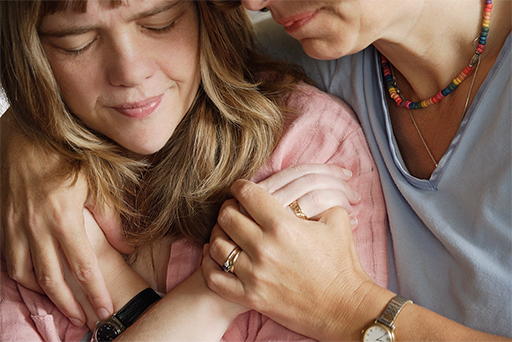Help Someone You Know
Have you ever wondered, suspected, or worried that someone you know is affected by abuse? We are here to help anyone affected by abuse and violence in Penobscot and Piscataquis counties in Maine.
You might see bruises, black eyes, and broken bones—and you might not. A lot of abuse is invisible. But, if you can’t shake the feeling that something is wrong, you’re probably right. And you’re right to take action. 50% of the homicides in Maine are related to domestic abuse.
It’s hard to know what to say or how to say it, especially if you don’t know the person you’re concerned about very well. But be brave. Reaching out can reduce isolation—often one of the hardest aspects of domestic abuse. Your offer to help, in whatever way you can, could change—or even save—a life.
If you suspect someone is affected by abuse, here are some steps you can take:
- Start a conversation. Find a safe, private place, and explain what you see or suspect.
- Listen. Don’t make assumptions, and don’t press for information. It may not feel—or be—safe to talk.
- Ask how you can help. Offer whatever support you feel you can. Remind them that abuse is not ever their fault.
- Suggest resources, including the Partners for Peace helpline (1.800.863.9909) for more help and information.
- Respect their choices, and their confidentiality. You may be tempted to take action and come to the rescue, but—because domestic abuse is such a complex issue—rescue attempts often backfire and can leave people even more vulnerable to danger. Don’t make assumptions about what they’ve tried or about what they have to lose.
- Do not assume that separation will end the abuse. Only the abuser controls the abuse.
- Don’t accept excuses for abuse. It’s not kind or helpful to anyone.
- Take care of yourself. Pay attention to your own safety, too. Be a bridge, not a destination.
You can also take action to:
- Make sure information about Partners for Peace is easily accessible. Hang a poster in the office kitchen or on the church bulletin board, or put cards in the bathroom. Call for materials and ideas, or order free materials.
- Call the police if you see or hear domestic violence.
- Organize workshops and schedule speakers about domestic abuse in your community, religious or civic group, or workplace.
- Help your business, workplace, profession, or religious community improve its response to domestic abuse. Check out our Prevention & Training programs.
- Volunteer for Partners for Peace.
Here are some other things to think about as you’re trying to help:
- What might this person hope you can do?
- What might they fear you will do?
- What is your role? How will what you say be heard?
- What is your potential impact or possible unintended consequence?
- Do you have the time and/or skill to become involved?
- When you ask, do you make time to listen?
- Who else is involved?
- What do you do when you don’t like your friend’s choices?
- Do you tend to make assumptions about…
- their experience?
- their options?
- how they’ve been treated?
- what they’ve got to lose?
Do you know someone who is abusive? Refer them to a state-certified Violence Intervention Program.
